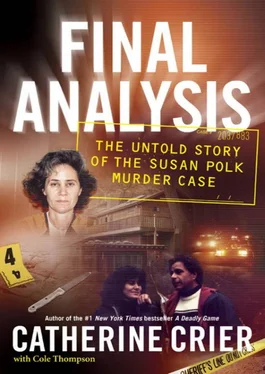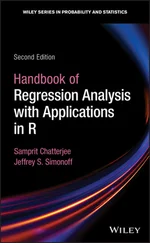In October of last year, in order to avoid another violent scene, I informed Felix that I was going to spend the day at the beach. Felix responded by hitting me in the face. When I burst into tears, he told me to leave the house and not come back. Felix told the children that I was crazy and destroying the family. He then ordered me: “go to your room.” He dragged me up the stairs and shoved me into our room. He said that he felt like hitting me because I was so provocative. One of my sons then stepped forward and punched me in the face…. These family scenes do indeed remind me of the way in which I was brought up. As Felix knew, there were constant violent confrontations in which my mother goaded my older brother into beating me up. It was part of my motivation to escape from my family that I submitted to Felix and agreed to marry him. While the despair that I feel in response to Felix’s violence is reminiscent of the despair I felt growing up in an abusive family, it is not just transference as Felix states. When Felix threatens to destroy me, to kill me, to leave me with nothing if I leave him, I do feel hopeless. After the last violent scene, I attempted suicide despite the fact that apart from my marriage, I love life.
During the course of our marriage, Felix has at times drugged me. Almost four years ago, when I talked of getting a divorce, Felix employed hallucinogens. Felix then hired a psychiatrist to evaluate me for antipsychotic medication while I was experiencing flashbacks. He refers to this period of my life as a psychotic episode. He denies the use of drugs in therapy, and would most certainly deny using hallucinogens. I know of no other way to account for the flashbacks, which I experienced during that time period. I have never willingly used LSD or hallucinogens. I do not drink excessively or use drugs.
Also on the computer’s desktop was a document “My diary.” During her interview at headquarters, Susan had mentioned that she kept a diary, and suspecting this was it, investigators confiscated the laptop for further examination. Continuing their search of the office, police recovered a receipt from the Best Western Hotel in Bozeman, Montana, for the dates that Susan had given during her interview with Detective Costa, and a Blockbuster Video rental receipt dated October 12, 2002, at 2:34 PM. There was also a piece of paper listing the residence at 1530 Arch Street, Berkeley, the five-unit apartment complex jointly owned by Felix and Susan Polk. According to the paper, Felix occupied Unit 1532. Gabriel claimed that his father vacated the unit prior to his murder, and the apartment was currently empty.
Other paperwork showed that the couple had nearly $5 million in real estate assets, including the Miner Road home, the Arch Street apartment complex, and a third building with four units on Linda Avenue in nearby Piedmont. The papers indicated that their debts totaled just under $1 million, and it seemed there was substantial money at stake in the divorce proceedings.
Officers observed an unusual number of books throughout the house. On the mantel in the living room above the stone fireplace were collections of Charles Dickens and William Makepeace Thackeray. Biographies of Europe’s master painters sat on a coffee table near the room’s enormous flat-screen TV. The glossy red and white cover of The Joy of Cooking stood out among the myriad cookbooks stacked on a counter in the kitchen.
On the second level of the home was a small laundry room. Inside the washing machine, police found a wet area rug, and the dryer held several towels, but a check of all the items revealed no visible bloodstains. No blood was detected on any of the clothing in the hamper near the appliances.
The master bedroom suite was up one more flight of stairs. The expansive room was tastefully decorated in soft earth tones and bathed in natural light from oversized windows. A queen-size bed with a wood headboard jutted out from one wall. Soft carpeting, an ample master bath, and an enormous walk-in closet gave the space a luxurious feel. In the bathroom, police collected the three blue hand towels that Costa had seen the night before and then searched the walk-in closet for bloody shoes. None were found.
Across the hall from the master suite on the north side of the staircase, there was a second bedroom and bathroom used by Gabriel. Between the two bedrooms, there was a third door that led out to the covered carport where Gabriel had hidden the previous night while he called the police. That carport, used mostly by Susan, was reached from the higher of the two driveways and provided access to the uppermost living quarters. Susan’s silver Volvo station wagon was still there, along with two additional cars parked farther down the driveway—another Volvo and Eli’s Dodge Ram 1500 pick-up truck that Susan had driven to Montana. The guesthouse where police were collecting fingerprints was south of the main residence and west of the small structure that contained a bathroom and the family’s home gym.
At 5 PM on Tuesday, October 15, the coroner’s van made its way to the cottage to remove Felix’s dead body, clearing the way for additional examination of the immediate crime scene. The forensic team remained there for several more hours to gather fingerprints and collect other potential evidence.
It was after 9 PM when Detective Costa and the others wrapped up their work at the Polk house, now encircled in bright yellow police tape. They returned to the Main Detention Facility at 1000 Ward Street in Martinez, where Susan Polk had been transported during the early morning hours after her interrogation. After being processed at the jail, Susan had been booked for the murder of her husband, Felix Polk. She knew both the routine and the facility, since she was processed at the same location eighteen months earlier on charges of “battery” after an argument with her husband had turned physical.
Once she was secure at the jail, the investigators conducted a second interview with Susan during which they observed several injuries on her body, prompting officials to undertake a full forensic examination of Susan’s hands, face, and body. Among other things, the examination uncovered bruising and redness on her right eye, and small red cuts on her hands and upper arms. “The injuries were consistent with someone who was involved in a physical confrontation in the recent past,” one of the detectives jotted in his report. “I asked Susan if she would consent to providing hair samples and photos of her injuries. Susan permitted the hair samples, but denied consent to the photos due to modesty.”
Her refusal prompted police to obtain a search warrant.
Detective Costa was on hand that night to supervise the photographing of the slight reddish discolorations around Susan’s eyes and the small healing wounds on her hands. He also stood by as an officer plucked a dark brown hair sample from her scalp. He was certain it would be a positive match to the strands found clenched in Felix Polk’s bloody right fist.
Chapter Seven
THE DOCTOR’S DISEASE
Frank “Felix” Polk had been a well-respected therapist and esteemed member of the faculty at Argosy University, where he taught psychology for more than a decade. His faint accent and formal attire reflected his wealthy European upbringing. His intuitive approach ingratiated him to others, from his superiors right down to the Argosy librarian.
Born in Vienna, Austria, on June 30, 1932, Felix had enjoyed a privileged childhood. His father, Eric Ernst Polk, was a wealthy clothing manufacturer, who was born a Jew in Czechoslovakia and later emigrated to Austria, where he met and married Johanna Hahn. The couple’s daughter, Evelyn, was two years old when Felix and his fraternal twin, John, were born. The children were reared by a nanny and led a charmed life for several years, but all that came to a sudden end in 1938 when SS officers came for Felix’s father. Young Felix could do nothing but hide as the men dragged the elder Polk away. It was a terrifying scene; large men in uniforms and helmets brutalizing his father and carting him away as the boy stood by, unable to help.
Читать дальше











